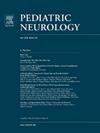青少年和家庭对小儿功能性癫痫发作诊断沟通的看法:定性研究
IF 3.2
3区 医学
Q2 CLINICAL NEUROLOGY
引用次数: 0
摘要
背景本研究旨在了解功能性癫痫发作青少年及其父母的诊断沟通经验和偏好。方法我们分别对一家三级甲等儿童医院的青少年及其父母进行了结构化访谈。我们与青少年的主治医生确认了功能性癫痫发作的诊断。所有访谈都进行了录音和专业转录。结果13名青少年(12至18岁)和13名家长分别完成了访谈。主题包括以下内容:(1) 家长和青少年都表示对自己的症状、诊断、预后和治疗方案感到恐惧;(2) 良好的沟通技巧包括提供保证、倾听和留出提问时间,但青少年和家长对沟通方式的偏好不同;(3) 青少年和家长的不良沟通方式包括使用医学术语、沟通(尤其是与青少年的沟通)简短、轻描淡写地描述青少年的症状、缺乏明显的同情心,以及缺乏书面材料作为讨论的补充;(4) 对心理健康在功能性癫痫发作中的作用的看法不尽相同,但都希望有具体的治疗计划,包括获得行为治疗的机会;以及 (5) 青少年和家长希望得到实用的指导,包括学校计划以及如何在所有环境中应对功能性癫痫发作。结论青少年和家长为优化诊断沟通提供了具体建议。研究结果将为今后制定教育干预措施提供参考,以改善沟通并为功能性癫痫发作的青少年创造一个支持性的环境。本文章由计算机程序翻译,如有差异,请以英文原文为准。
Youth and Family Perspectives on Diagnosis Communication About Pediatric Functional Seizures: A Qualitative Study
Background
This study aims to understand diagnosis communication experiences and preferences of youths with functional seizures and their parents.
Methods
Semistructured interviews with youths and their parents from a tertiary care children's hospital were conducted separately. We confirmed the diagnosis of functional seizures with the youth's treating providers. All interviews were audio recorded and professionally transcribed. Two coders performed thematic analysis and determined themes.
Results
Thirteen youths (aged 12 to 18) and 13 parents completed interviews separately. Themes included the following: (1) both parents and youths reported substantial fear about their symptoms, diagnosis, prognosis, and treatment options; (2) good communication skills highlighted included providing reassurance, listening, and allowing time for questions, with different preferences between youths and parents in the mode of communication; (3) poor communication for both youths and parents included use of medical jargon, brevity of communication especially with the youth, minimization of youth's symptoms, lack of apparent compassion, and lack of written materials to supplement discussions; (4) perspectives on the role of mental health in functional seizures were heterogeneous, yet concrete treatment plans were desired including access to behavioral therapy; and (5) youths and parents wanted practical guidance including plans for school and how to respond to functional seizures in all settings.
Conclusions
Youths and parents provided concrete recommendations for optimal diagnosis communication. Study findings will inform the future development of an educational intervention to improve communication and create a supportive environment for youths with functional seizures.
求助全文
通过发布文献求助,成功后即可免费获取论文全文。
去求助
来源期刊

Pediatric neurology
医学-临床神经学
CiteScore
4.80
自引率
2.60%
发文量
176
审稿时长
78 days
期刊介绍:
Pediatric Neurology publishes timely peer-reviewed clinical and research articles covering all aspects of the developing nervous system.
Pediatric Neurology features up-to-the-minute publication of the latest advances in the diagnosis, management, and treatment of pediatric neurologic disorders. The journal''s editor, E. Steve Roach, in conjunction with the team of Associate Editors, heads an internationally recognized editorial board, ensuring the most authoritative and extensive coverage of the field. Among the topics covered are: epilepsy, mitochondrial diseases, congenital malformations, chromosomopathies, peripheral neuropathies, perinatal and childhood stroke, cerebral palsy, as well as other diseases affecting the developing nervous system.
 求助内容:
求助内容: 应助结果提醒方式:
应助结果提醒方式:


